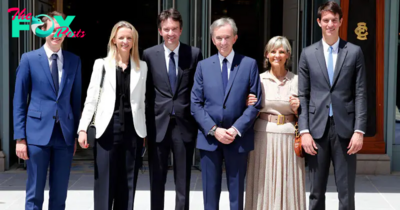Lifestyle
ESG Investing: The Root of All Good?
A paradigm shift is taking place in the ways we manage wealth, in which traditional measures of performance are increasingly complemented by criteria calculating environmental, social and governance factors. Once regarded as niche, ESG investing have now entered the financial mainstream.
In today’s investment climate, moral imperatives are fast aligning with fiscal prudence, with financial institutions and individuals rapidly redefining what it means to build and manage wealth. It’s a change that’s especially driven by next-generation principals as they assume control of their family offices.
Environmental, social and governance (ESG) investing has seen exponential growth in recent years. According to the Global Sustainable Investment Alliance (GSIA), sustainable investments now account for about a third of total global assets under management (AUM). The surge is fuelled by several factors: increasing awareness of climate change, social inequality and corporate governance issues, combined with a recognition that companies excelling in these areas often outperform their peers.
High-net-worth individuals (HNWIs) and institutional investors are at the forefront of this movement. A survey by UBS found that 79 percent of HNWIs are interested in sustainable investing, driven by a desire to align their investments with their values and mitigate long-term risks. Further propelling its growth are millennials who inherit significant wealth and are particularly inclined towards ESG investing.
Integrating ESG into investment strategies

Integrating ESG principles into investment strategies requires a comprehensive approach to evaluating potential investments. The criteria cover a range of factors.
- Environmental: companies’ impact on the planet, including carbon footprint, resource usage and waste management
- Social: corporate social responsibility, labour practices and community engagement.
- Governance: Board diversity, executive compensation, and transparency.
Financial professionals employ various tools to assess these factors and determine a company’s ESG performance. These include the MSCI ESG Ratings and the Sustainability Accounting Standards Board (SASB) standards.
“We’ve seen demand for investments with a positive environmental and/or social screen grow at a steady pace since we started measuring these figures in 2021,” says Mariam Ashroff, head of sustainability management Asia at LGT Bank (Hong Kong). “The pandemic brought to light the extent to which social and environmental issues are deeply interconnected with global economic growth.”
The bank’s owners, the princely family of Liechtenstein, have held sustainable and long-term thinking in high regard for generations. Their commitment to sustainable investing includes setting clear and measurable targets, focusing on transparency and providing advice to clients that contributes to solving environmental and social problems while protecting the climate.
Contrary to the outdated notion that sustainable investing sacrifices returns, numerous studies demonstrate that ESG-integrated portfolios can perform as well as, if not better than, traditional portfolios. For instance, a report
by Morgan Stanley found that sustainable funds provided returns similar to those of traditional funds, while offering lower downside risk. This resilience is particularly valuable in volatile markets, where ESG-focused companies tend to exhibit better risk-management and operational efficiencies.
“Investment strategies now increasingly incorporate ESG principles because regulations for public markets now require greater disclosure from companies,” says Carlo Chen-Delantar, head of ESG at Gobi Partners. “For firms like us, this shift represents a pivotal moment where private market investors can prepare their portfolio investments. ESG is becoming a fundamental component of organisational strategies, enhancing both financial returns and positive societal impact.”
“Sustainable investing isn’t a passing trend. It’s here to stay,” Ashroff says. “The field has experienced exponential growth in recent years, leading to the integration of ESG principles across a diverse range of strategies and asset classes, ensuring there’s an option for every type of investor. Our clients can choose from a wide array of approaches, including sustainable best-in-class strategies, SDG (sustainable development goals)-aligned thematic investments, and low-carbon and impact-investment strategies. While each of these strategies can be beneficial if pursued on their own, it would be advantageous for private banking clients to use a combination to address various sustainability topics while gaining exposure to different factors such as growth, value and quality.”
As the landscape continues to shift towards greater accountability, it seems likely that investors who embrace ESG considerations will be well positioned to navigate the complexities of modern markets and contribute to a more sustainable future.
Challenges and opportunities

One of the main issues in ESG investing is the availability and reliability of data. Unlike balance sheets, ESG data can be inconsistent and difficult to compare between companies and industries. However, technological advances, such as artificial intelligence and big-data analytics, are enhancing the ability to collect and analyse ESG information. Additionally, regulatory developments, including the European Union’s Sustainable Finance Disclosure Regulation (SFDR), are pushing for greater transparency and standardisation in ESG reporting.
Governments and regulatory bodies around the world are blazing the trail by introducing policies to encourage sustainable finance. The European Commission’s European Green Deal initiative aims to mobilise at least €1 trillion in sustainable investments over the next decade. These initiatives aim to create new opportunities for investors to engage in ESG investing.
Financial institutions are following in their footsteps. According to Yvonne Leung, managing director and head of managed solutions Asia at JP Morgan Private Bank, “We set our sustainable development target in 2021 with the goal of financing and facilitating more than US$2.5 trillion over 10 years to help advance long-term climate initiatives, including US$1 trillion for green initiatives, and contribute to sustainable development. Collectively we’ve since financed and facilitated US$675 billion towards our target, including US$242 billion towards our US$1 trillion green target.
“When it comes to ESG investing for our clients, we apply our capital and expertise to help meet their Business objectives and realise the economic and investment opportunities of the transition to a low-carbon economy. Our efforts are guided by the three pillars of our environmental sustainability strategy: scaling green solutions, balancing environmental, social and economic needs, and minimising our operational impact.”
BlackRock, the world’s largest asset manager, has also been a vocal advocate for ESG investing. In 2020, CEO Larry Fink announced that sustainability would be at the centre of BlackRock’s investment approach. The firm has since launched several sustainable investment funds and committed to increasing transparency around ESG criteria.
The Norwegian Government Pension Fund Global, often referred to as the Norwegian Sovereign Wealth Fund, is another prominent example of successful ESG investing. With assets exceeding $1 trillion, the fund has implemented strict ESG criteria, excluding companies that don’t meet its ethical standards. This approach has led to notable divestments from industries such as coal and tobacco, while also driving investments in renewable energy and sustainable technologies.
The future of ESG investing
The future of ESG investing is likely to be shaped by several emerging trends. These include the increased use of thematic investments, such as green bonds and impact funds, which target specific sustainability goals. The integration of ESG factors into passive investment strategies is also gaining traction, making sustainable investing more accessible to a broader range of investors.
“On the opportunity side, the potential for building future capacity in responsible investing is significant,” says Chen-Delantar. “Looking ahead, the future of ESG investing promises fewer cautionary tales of companies cutting corners. Instead, there’ll be a greater emphasis on addressing the critical challenges facing our world. As ESG principles become more deeply integrated into investment strategies, we can expect a more sustainable and socially responsible approach to generating financial returns.”
As for technological innovations aiding in assessing ESG investments, Ashroff foresees great potential. “AI tools will enable us to optimise investment portfolios by identifying patterns, correlations and trends in our data that mightn’t be evident through manual analysis. One of our key focus areas is leveraging AI to develop early warning signals for sustainability risks that could impact a company’s financial value. For instance, by combining multiple correlating data points, such as a company’s controversies alongside its governance scores, we can assess its ability to navigate crises and maintain its share price.”
As the world grapples with pressing environmental and social challenges, the rise of ESG investing marks a transformation in wealth management, wherein ethical considerations and financial performance are no longer mutually exclusive but deeply intertwined. By prioritising sustainability, institutional investors, HNWIs and family offices are driving a powerful shift towards more transparent and responsible investment practices.
The ethical billionaire is no longer an anomaly, but rather the embodiment of a new era of wealth. In today’s financial landscape, it seems doing good is the new gold.
-

 Lifestyle6h ago
Lifestyle6h agoDon’t Toss Those Eggshells!
-

 Lifestyle7h ago
Lifestyle7h agoDid Aishwarya Rai drop 'Bachchan' from her name? | The Express Tribune
-

 Lifestyle7h ago
Lifestyle7h agoNargis approaches FIA against fellow actresses | The Express Tribune
-

 Lifestyle11h ago
Lifestyle11h agonew 1497
-

 Lifestyle11h ago
Lifestyle11h agoNew 1490
-

 Lifestyle12h ago
Lifestyle12h agoNew 1489
-

 Lifestyle12h ago
Lifestyle12h agoNew 1486
-

 Lifestyle13h ago
Lifestyle13h agoThe price of charity | The Express Tribune


























